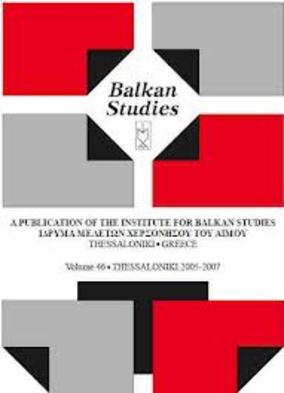Un elemento ascitizio di alcune lingue Slave, Germaniche e Semitiche derivato dal nome di un antico nummo aureo
Part of : Balkan studies : biannual publication of the Institute for Balkan Studies ; Vol.30, No.1, 1989, pages 93-106
Issue:
Pages:
93-106
Parallel Title:
A loanword in some Slavic, Germanic and Semitic languages originated from the name of an ancient coin
Section Title:
Articles
Author:
Abstract:
Most of the Slavic languages express the concept of “coin” (Sg.) and“money” (PI.) by words related to an ancient Slavonic *pënedz6, yet thesource of this loanword is unknown. The Slavic word is correlated to theGerman and English name of small change (“Pfenning” and resp. “penny”).As from the IV century A.D. the most widely spread golden coin in the EasternRoman Empire was the “solidus” (i.e. ‘hard currency’), which — accordingto contemporary sources — was also referred to with the latin name of “pensa[auri]” (i.e. ‘weighed quantity [of gold]’). The paper introduces evidencetending to show that the borrowing of the latin word into ancient Slavonic tookplace when the Slavic peoples got in touch with the Byzantine Empire. Yet,a similar word is to be found also in classical Aramaean (cf. pizah ‘pure gold’)and in biblical Hebrew (cf. paz ‘pure gold’). Hence we can assume that theword pensa was used in connection with the coinage of Philip of Macedon,who struck golden staters as from 357/6 B.C. onwards.
Subject:
Subject (LC):
Notes:
Το άρθρο περιέχει εικόνες.




